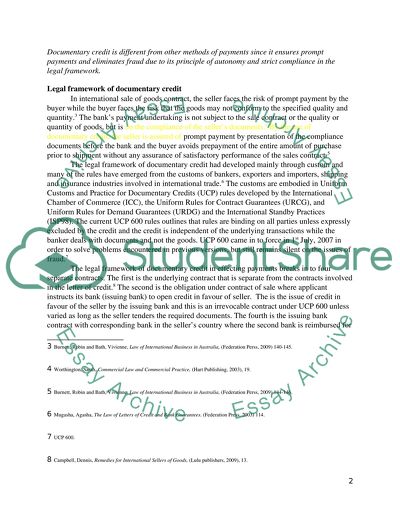Cite this document
(“Documentary credit is an important method to effect payment in Research Proposal”, n.d.)
Retrieved from https://studentshare.org/law/1688201-documentary-credit-is-an-important-method-to-effect-payment-in-international-sale-of-goods-documentary-credit-differs-from-other-means-of-payment-discuss-and-critically-analyse-these-statements-with-particular-reference-to-the-legal-framework-or-fram
Retrieved from https://studentshare.org/law/1688201-documentary-credit-is-an-important-method-to-effect-payment-in-international-sale-of-goods-documentary-credit-differs-from-other-means-of-payment-discuss-and-critically-analyse-these-statements-with-particular-reference-to-the-legal-framework-or-fram
(Documentary Credit Is an Important Method to Effect Payment in Research Proposal)
https://studentshare.org/law/1688201-documentary-credit-is-an-important-method-to-effect-payment-in-international-sale-of-goods-documentary-credit-differs-from-other-means-of-payment-discuss-and-critically-analyse-these-statements-with-particular-reference-to-the-legal-framework-or-fram.
https://studentshare.org/law/1688201-documentary-credit-is-an-important-method-to-effect-payment-in-international-sale-of-goods-documentary-credit-differs-from-other-means-of-payment-discuss-and-critically-analyse-these-statements-with-particular-reference-to-the-legal-framework-or-fram.
“Documentary Credit Is an Important Method to Effect Payment in Research Proposal”, n.d. https://studentshare.org/law/1688201-documentary-credit-is-an-important-method-to-effect-payment-in-international-sale-of-goods-documentary-credit-differs-from-other-means-of-payment-discuss-and-critically-analyse-these-statements-with-particular-reference-to-the-legal-framework-or-fram.


